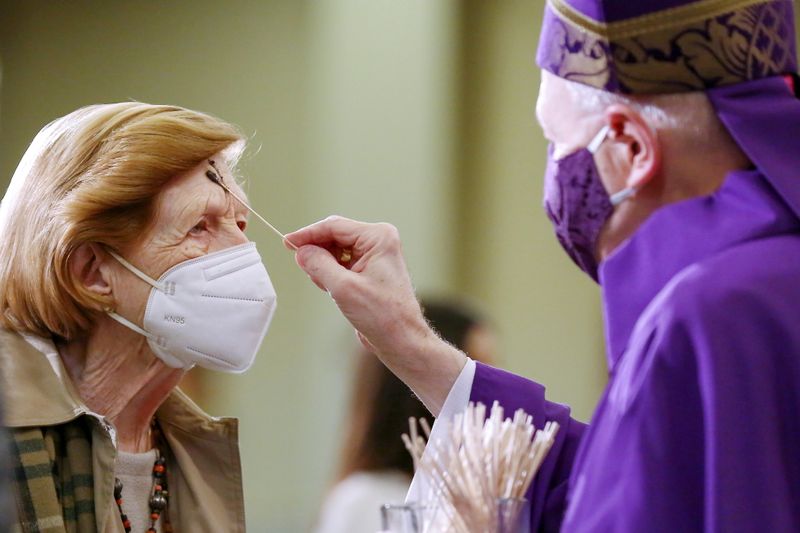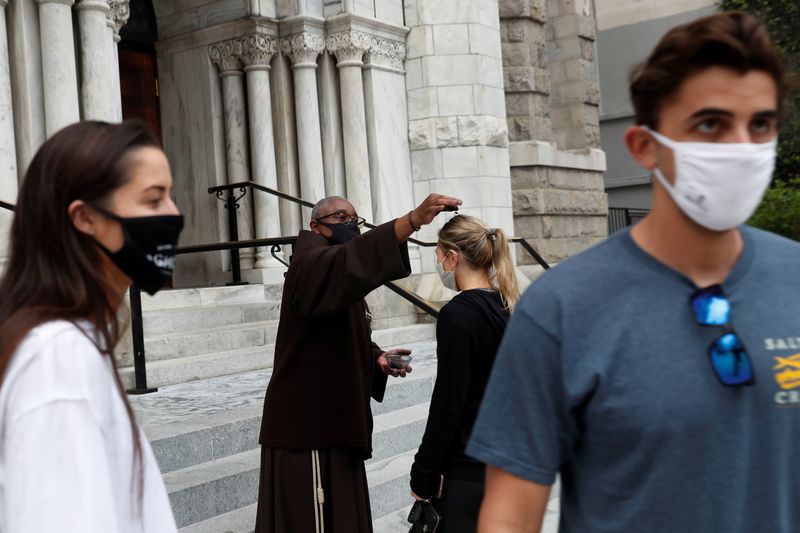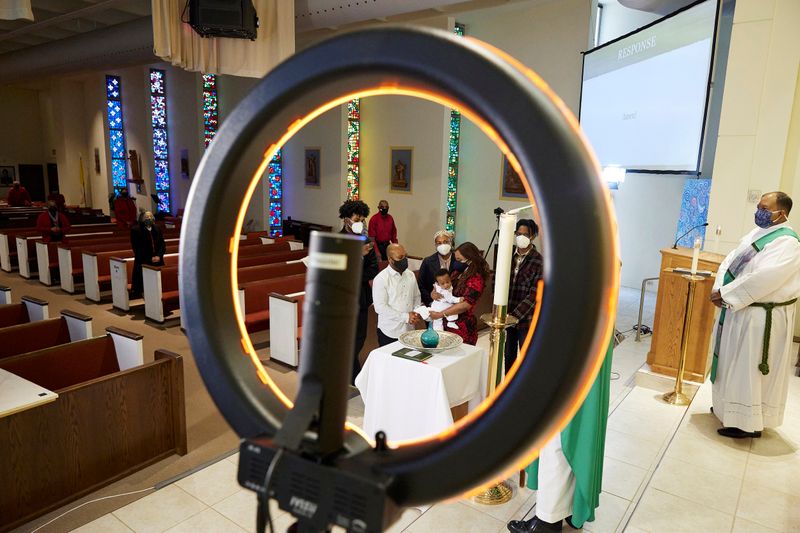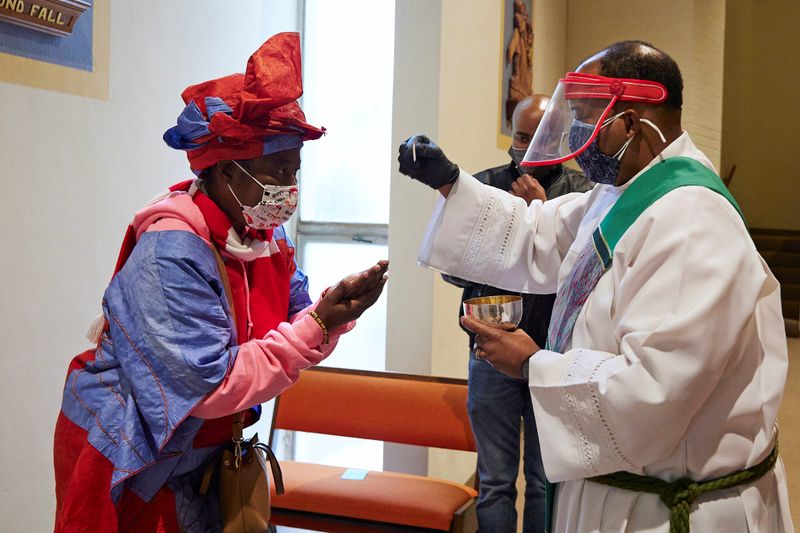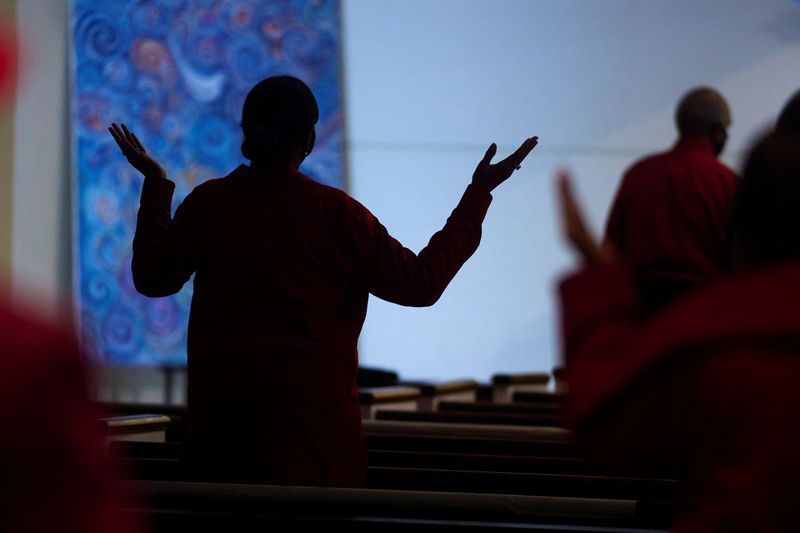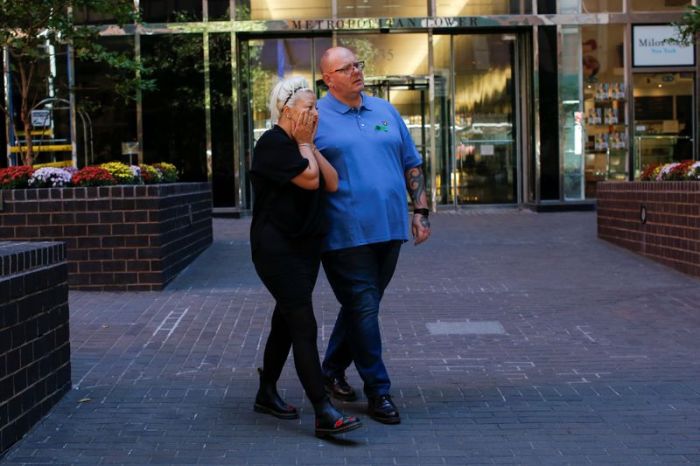(Reuters) – Kimberly Hendricks will usher in the somber Christian period of Lent on Ash Wednesday from the parking lot of her Sacramento church instead of its sanctuary thanks to COVID-19 restrictions.
She and the other congregants of St. John’s Lutheran Church in California will listen to the familiar prayers from their car radios before marking their own foreheads with a cross using ash and oil they mixed themselves.
“It’s not perfect, but it’s what we can do right now,” said Hendricks, 50.
Nearly a year since the pandemic curbed large gatherings, communities of faith have grown more creative to reach congregants hungry for spiritual and social connections.
In many Catholic communities, ashes will not be worn on the forehead as is traditional in America as a symbol of mortality and penance in advance of the Easter holiday on April 4. Instead, most churches are following guidance from the Vatican to sprinkle the ashes on the congregant’s head. Others are applying them with Q-tips or cotton balls in a drive-through setup.
With the actual wearing of ashes not required by the Catholic church, some parishes are skipping application of ash entirely or holding only digital services due to safety concerns.
Online services and Zoom meetings now are mainstays of distance worship. But congregants like Hendricks say they need more to fill the void created by the lack of in-person interaction.
“Religious or secular, there is a certain amount of Zoom fatigue,” said Bryan Visitacion, a spokesman for the Roman Catholic Diocese of Sacramento.
In suburban Atlanta, the COVID-era changes do not bother Fred Maxwell, 75, a congregant at Saints Peter and Paul Catholic Church who has not missed an Ash Wednesday Mass since he was old enough to participate.
“It’s not the ritual that’s important,” Maxwell said. “It’s how you turn inward and try to be a better Christian, a better person.”
“They could put the ashes on my nose for all I care.”
‘PURIM IN THE ARCTIC’ SERVICES
Jewish synagogues will celebrate the festive holiday of Purim on Feb. 25 and 26 with drive-through carnivals, outdoor services and “holiday-in-a-box” packages that congregants can open at home.
The Temple Beth Hillel synagogue in Los Angeles typically holds a large community carnival for Purim – a celebration of the Jews’ salvation from genocide in ancient Persia – with amusement park rides, food vendors and crafts.
But this year, costume-clad families instead will drive through a series of games in the synagogue’s parking lot, including a coin toss for charity, Rabbi Sarah Hronsky said.
At the end of the ride, everyone will get hamentaschen, traditional Jewish cookies eaten on the holiday, and have their photos taken, Hronsky said.
Hronsky’s more liberal Jewish tradition allows for the religious aspect of Purim, which includes reading from the biblical scroll of Esther, to be conducted through online services.
Worshipping via Zoom has brought unexpected blessings, Hronsky said, allowing congregants who have moved away or elderly members who have difficulty coming to the synagogue to participate.
But “I think there is a huge desire to want to be together,” she said. “Nothing will replace the power of a hug.”
In the orthodox Jewish community, where tradition holds that the story of Purim should be read in person, some synagogues are hosting numerous small events so congregants can gather without being in a large crowd. Others are holding services outdoors.
In the Hasidic Chabad movement, several synagogues in cold locations are having outdoor “Purim in the Arctic” services and parties, said Motti Seligson, a spokesman for the movement. Congregants will don winter coats and hats as their masquerade costumes.
“Chabads across the country are encouraging people to really get into it,” Seligson said. “If we ever needed a shot in the arm of joy around Purim, it would be this year.”
(Reporting by Sharon Bernstein in Sacramento, California, and Rich McKay in Atlanta; Editing by Colleen Jenkins and Lisa Shumaker)

